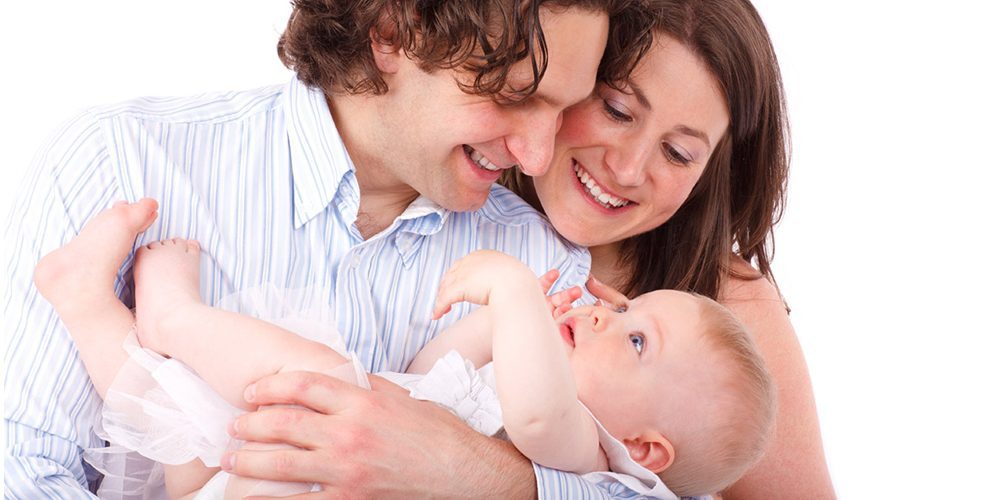Becoming a parent for the first time is a moment incomparable to any other. The arrival of your first baby will change everything and transform your world completely. All of a sudden you carry the responsibility of taking care of and providing for another human being. During the first years, your little one will depend entirely on you and it is normal for this event to bring a number of questions and doubts your way.
Remember that there is no need to panic. There is so much support and advice that you can use online, via experienced professionals such as pediatricians or parenting consultants, and even your own parents. You may be well-equipped with information and preparing is certainly advisable but keep in mind that what you are looking for isn’t always in the books. Raising a baby is a major challenge in life but it is certainly rewarding when you see how your tiny human starts developing and growing into a conscious and well-brought individual.

To help make the path of parenting a bit easier for you, we thought it may be interesting to show you some of the top questions first-time parents almost always ask. Some of these questions may relate to you more than others at the time. Let’s go through them together and see how their answers can make your parenting a smoother and stress-free experience.
How long should I breastfeed my baby?
Breastfeeding is usually on the top of the list of questions new parents ask. And this is absolutely normal as it is not comparable to anything else you’ve experienced before. It may be difficult to pinpoint the right moment to stop breastfeeding and slowly making a transition to puréed foods.
There is no right or wrong answer to this question as every newborn is different. It is mainly the mother’s role to make a decision when breastfeeding should stop. However, research suggests that it is best to provide your baby with mother’s milk exclusively for around six months. This time period is enough for the newborn to bulk up on all the essential benefits from the substance. After the first six months, the expert advice is to combine breastfeeding with other foods for a time period between six months and one year.
When should supplements become a part of my baby’s diet?
Just like with grownups, babies too need their share of vitamins to grow healthy and strong. Especially when breastfeeding, the baby receives a range of valuable nutrients but has no source of Vitamin D. Specialists reveal that it is okay to give vitamin D supplements to your little one while breastfeeding. The suggested dose is 400 international units daily.
As the baby grows and turns six months, you can look for multivitamin supplements that offer both vitamin D and iron. Keep in mind that if you are giving your newborn a baby formula, it may already contain some of these supplements. Make sure to carefully read all of the ingredients and avoid giving too much of a certain vitamin to avoid any potential risks.
What should I know about my baby’s umbilical cord?
The umbilical cord is no reason for parents to stress but it does cause a number of questions and dilemmas. In normal circumstances, the umbilical cord of your newborn should naturally fall off two weeks after the baby’s birth. The separation can take place sooner, which should not alarm you.
Before it falls off, all that parents should do is ensure it is clean and dry at all times. You can use rubbing alcohol to gently clean it a few times a day for perfect hygiene. We should note that there is a chance that it can turn red or develop a foul odor. If you notice such symptoms, it is best to visit your pediatrician for a check-up.
How often should my baby eat?
During the first months of your newborn’s life, they will need to get all the nutrition they can and it is normal for them to be hungry often. According to the specialists, it is normal to feed your infant at least every three hours. Depending on your baby’s desire to consume more, you can increase the feeding times during the day.
If we look at it from a monthly perspective, let’s say that during their first month, your newborn should eat between eight and twelve times a day. When they reach four to eight weeks, reduce the feeding times to seven at least and maximum nine. You will notice yourself that as the months pass, your little one will be less demanding for food.
AT first, the feeding process may not exactly be a simple task but once your baby gets into the habit of it, you will be relieved as well.
What’s the best sleeping position for my newborn?
You might have heard that babies should sleep on their backs. Have you ever wondered why?
Putting your infant to sleep on their belly is extremely dangerous and unadvisable. During their first months, babies have no control over their bodies, meaning that it is the responsibility of the parent to choose a sleeping position which is both safe and comfortable. Putting a baby to sleep on their stomach hides risk of sudden infant death syndrome due to suffocation.
At first, it is highly advisable to check on your baby every now and then when they are sleeping to make sure that they haven’t turned on their bellies in their sleep. In addition, avoid placing other objects in the baby crib during the first months of your baby’s life to avoid risky situations.
Bottle and pacifier sterilization – should it happen every time?
Ideally speaking, everything that your baby touches should be sterilized beforehand. Of course, reaching this ideal is merely impossible in today’s world. However, what we can do is ensure that at least the objects that our babies put in their mouths are clean and safe to use.
It’s not necessarily wrong if you miss sterilizing your little one’s bottle or pacifier from time to time but specialists suggest that it is best for the objects to be cleaned every time. You can use professional liquids for sterilization or soak the bottles and pacifiers in soap and water overnight to get rid of bacteria.
Don’t forget to wash your hands with soap or antibacterial liquids before touching your little one’s bottle to avoid the spread of germs.
What can I do to make my baby stop crying?
Babies cry all the time. This is a well-known fact around the world and if your little one is one of those babies – nothing is wrong with them. Most times, babies cry without any apparent reason and it is not always a signal that they are in pain or feel discomfort. Sometimes, a baby may cry because or meeting a new person or being placed in new scenery.
It is up to you to get to know your little one and read the signals they give. In some occasions, crying may be a result of your baby feeling hot or cold, a sign of hunger, or even a health problem. It is always best to check for any symptoms of a medical condition and if the crying continues, get professional help from a doctor.
How can I make bathing time more pleasant for my little one?
Bathing your little one for the first time is probably among the most exciting first-timers ever. However, keep in mind that this may not always be the case for your baby. Putting placed in an object filled with warm water is certainly something new as an experience and the reactions may dramatically vary.
If you notice that your baby feels uncomfortable or doesn’t stop crying while you bathe them, try to make things more pleasant by slowly introducing them to the process. It may help to go for a sponge bath at the beginning. Once you are ready to move to the water, start by allowing your little one the time to feel and adapt to the water temperature by placing an only a finger of a hand in the water.
Are baby rashes dangerous?
Rashes can, indeed, look worrying and sometimes even horrifying. But worry not as rashes may not always be a sign that something is wrong. Baby skin is extremely sensitive and pretty much anything it touches can lead to a rash of at least an alarming red color. In most cases, it is simply a result of the skin’s adaptation to new objects and conditions.
Although most rashes have the tendency to go away without any medication or treatment, if you notice that your little one is struggling to cope with their rash and they feel discomfortable and irritated, get an expert opinion and consider the possible solutions.
There they are! The top nine questions most new parents ask! We’re certain that some of them crossed your mind if you are about to have your first baby or recently became a parent. We hope that the provided answers will help you go through the process with more relief and confidence.





































